Max Schmeling: Fist of The Reich
Max Schmeling is a German sporting icon, perhaps the most revered sporting legend in Germany, the equivalent of Henry Cooper, Stirling Moss and Bobby Moore combined in Britain and certainly the most important boxer that country has ever produced. With a career spanning two decades and the Second World War (in which he served as an elite paratrooper), Schmeling is known by most boxing fans to his two fights with Joe Louis - certainly one of the top three heavyweights of all time. He was unfortunate enough to be popular when the Nazi party came to power and was taken as an example of German sporting prowess, made a member of the party and, in his fights with Joe Louis,
I requested this disc for review coming via the title and press release without looking into it in any more depth - why would I as I don't usually do that for any other film? So, looking forward to an in-depth biopic of one of Europe's finest heavyweights, I pressed play on the remote control and, when the logo for Boll AG appeared on the screen, my heart sank as I knew I was in for un film de Uwe Boll - perhaps the most denigrated filmmaker on the planet.
Max Schmeling: Fist of the Reich (or, to give it its original title, Max Schmeling), begins in 1943 where the former heavyweight world champion has parachuted into Crete and is suffering from a leg wound as the British forces approach and the Germans prepare to withdraw. With a prisoner (a German soldier who is a prisoner for reasons unknown), Schmeling is ordered to escort him to HQ which means travelling in the direction of British before turning away from them when they meet a river. On the way, the prisoner mentions to Schmeling that he followed his career and asks him what it was like in 1930 when he fought Jack Sharkey - cue flashback!
Schmeling is the only fighter in the history of the sport to win a world title by disqualification and this section shows him fighting Sharkey, being dealt a low blow - possibly deliberately - and is unable to continue. Declared the winner and new world champion by the referee, there is uproar and no one is happy about the unsatisfactory conclusion. Upon his return to Germany, Schmeling isn't exactly welcomed as a conquering hero, such was the nature of his victory, yet is fairly wealthy and respected as a world champion. At a dinner in an upmarket hotel with his Jewish trainer, Max Machon, and American manager, Joe Jacobs, he notices a striking blonde across the room and is told she is the actress Anny Ondra.
After tracking her down, giving her flowers and a ringside ticket to his next fight, despite her protestations, the two fall in love and marry, something that doesn't go down particularly well with the new government, who frown on a German sporting icon being married to a Czech, particularly one with plenty of Jewish friends. However, by the time Adolf Hitler had been sworn in as Chancellor, Schmeling had lost his title in extremely controversial circumstances and, following the reluctance of champion Gene Tunney to fight him, choosing a man Schmeling had surprisingly beaten, Joe Louis, as his next opponent, Schmeling was out in the cold and had to fight his way into contention.
With Joe Louis as the heavyweight champion of the world, Schmeling was keen on a rematch and another shot at the man he had knocked out several years previously, the stage was set for a fight with huge political and racial ramifications as some billed it as America versus Germany, democracy versus dictatorship, and black against white.
I was slightly puzzled as to why Uwe Boll would choose to make a film like this as it isn't exactly cheap exploitation material, isn't a videogame adaptation nor a film with mass appeal outside Germany. Perhaps it was Boll's stint as a semi-professional boxer, something he put to good use when challenging his critics to 'put up or shut up' and fight him - something which turned out very well for the German filmmaker when he pretty much wiped the floor with them! He's probably a keen boxing fan and even has a small role in this as the referee in the second fight.
That being said, such a respected figure as Max Schmeling, who died in February 2005 aged 99, deserves a much better director to make his biopic as Muhammad Ali had Michael Mann and Jake LaMotta had Martin Scorsese. Casting German heavyweight Henry Maske, a man with no acting experience but, as a former professional boxer and IBF world title holder who now works as a commentator and McDonald's franchise owner, to play Schmeling, Boll had someone who knew how to box and behave in the ring. Maske apparently took acting lessons for eight months to prepare for the role, something which really doesn't show. I haven't seen much footage of Schmeling outside the ring, but I can't believe he was as charismatic as a block of wood and about as animated, having made a lucrative career as the representative for Coca-Cola in Germany following the end of his ring career.
Every boxer is played by a real-life boxer, some more recognisable than others, so it seemed fairly weird watching Henry Maske fighting former IBF middleweight world champion Arthur Abraham when you are supposed to be watching Max Schmeling take on Richard Vogt. Given how well known both men are in Germany, it must really tense Coleridge's notion of the willing suspension of disbelief to believe Abraham, a current fighter now plying his trade at super-middleweight, is a heavyweight from the 1930s! Because the fight scenes are between real boxers, it is all too clear that they are 'pulling punches' as, aside from some body shots, it just looks like a series of light sparring sessions strung together. Speaking of which, it is strange how, at no point, does Schmeling engage in any sparring and there is no mention of Schmeling's stay in hospital or broken vertebrae following the second fight with Joe Louis, nor does he scream loudly in pain as he did in the real fight.
I had a real problem with the German ringside commentator and the dialogue written to him as, either at the beginning of a fight or occasionally during it, he tells the audience what year it is and whether fight is taking place. The latter is perfectly understandable, but would a radio audience really need reminding that it's 1930? Those watching the film don't need a reminder either as a caption appears to tell you who is fighting, when and the venue.
I've had several bad experiences with films set in a foreign country where everyone amazingly speaks English, mostly with an American accent, such as Valkyrie and, most recently, Uwe Boll's very own Bloodrayne: The Third Reich but this film is different as everyone, and I mean everyone, speaks fluent German including Joe Louis, the American promoters and the head of the New York Boxing Commission! Mind you, some of the dialogue is so terrible that a properly wouldn't matter whether it was spoken in English, German or Tagalog as it would still be rubbish.
Uwe Boll is generally regarded as a man with very little filmmaking talent and this is a film that does nothing to dispel that opinion as it is badly directed,, written and acted. It doesn't really tell you think about Max Schmeling the man or Max Schmeling the boxer. Max Schmeling does attempt to give you a little of the social situation in Germany but it is normally reduced to Schmeling's meetings with the Reich sports minister, Hans von Tschammer und Osten, so when you have a full-blown scene set during Kristallnacht, it feels completely out of place and almost from a different film.
The Disc
Extra Features
When the disc begins come you have the rather patronising, though preferable to the anti-piracy warning, animation thanking you for purchasing the disc which is followed by trailers for Lebanon, Attack on Leningrad and City of War. Fortunately, these are skippable so you can choose to watch them or just press skipped several times.
The disc only has one extra feature: Making of (10:15) is a typical EPK piece, comprising interviews with the principle members of the cast and crew who are all extremely complementary about each other and the film shoot itself.
The Picture
Generally, the anamorphic 1.85:1 picture has very good contrast and colours and appears to have been shot digitally, something which Boll likes to do as it allows him to watch the takes very quickly and not worry about using film stock. The colours are generally very muted which makes the red swastika flags and armbands really stand out.
As a boxing biopic, the fight scenes are intrinsic to the narrative and they are incredibly well staged, with Uwe Boll saying they used over 10,000 extras and the arenas generally look packed to the rafters. As I mentioned above, it is unfortunate that the two boxers are played by real boxers as they don't look like they are throwing their punches with full force and tend to 'paw' with jabs rather than ramming them home and the power shots are delivered lightly and without much force, almost like in a light sparring session.
The Sound
You have the choice of Dolby Digital 5.1 surround or 2.0 stereo and I watched most of the film with the surround option, sampling the stereo every so often. Both do a good job with the dialogue but, when it comes to the fight and combat scenes, the surround track has the edge as the rear surrounds are used well so you can hear the audience behind you or the sound of explosions or aeroplanes.
The score, by frequent Boll collaborator Jessica de Rooij, is far from brilliant as it can be loud when it needs to be quiet and a little too heavy-handed when it comes to the emotional scenes.
Generally, the burnt in English subtitles are clear, easy to read and free from spelling or grammatical errors but there are a few occasions when it puts 'He' in a sentence rather than 'he', as if referring to a deity!
Final Thoughts
As boxing biopics go, this tells you very little about its subject - the raison d'être of a biopic so all you really learn from the film is Max Schmeling was a boxer who won the world heavyweight championship, lost it, boxed on and then joined the Luftwaffe and was injured in 1943. Before the end credits, there are a series of intertitles giving you information on Schmeling, Jacobs, Ondra, Machon and von Tschammer und Osten, to compensate for information left out of the film. Although it runs at 118 minutes (PAL), it isn't overly comprehensive in the information it divulges yet feels a lot longer than two hours.
It is a pretty poor film that fails to engage on any emotional level and is so badly constructed and acted that I wouldn't recommend this to anyone, including boxing fans.
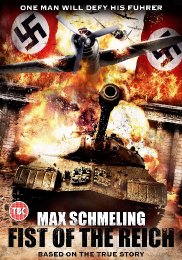











































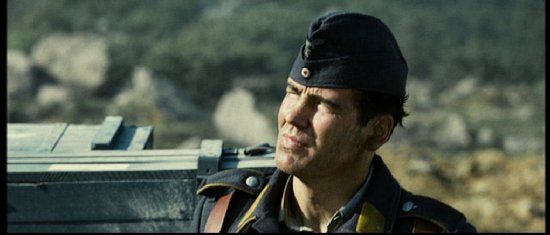
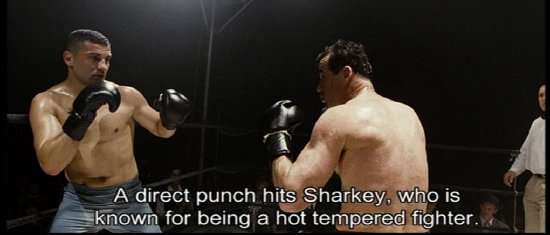
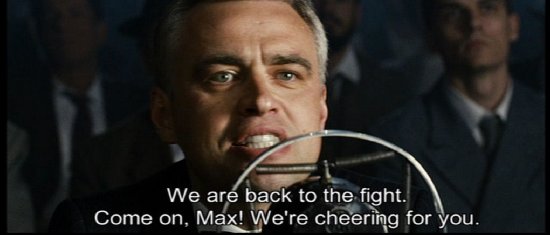
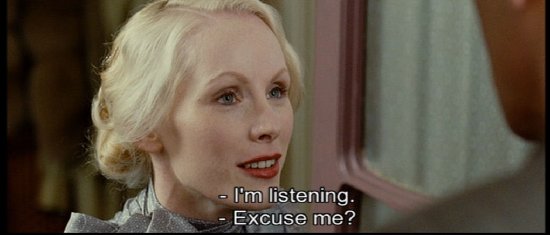
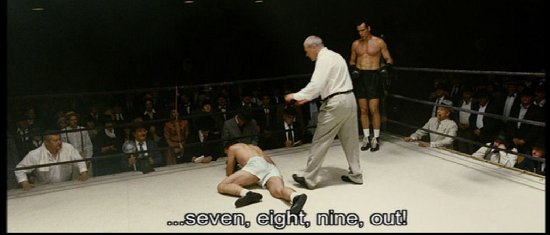
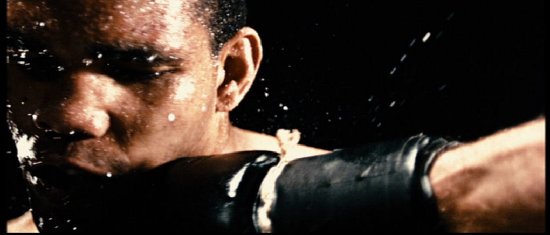
Your Opinions and Comments
Be the first to post a comment!